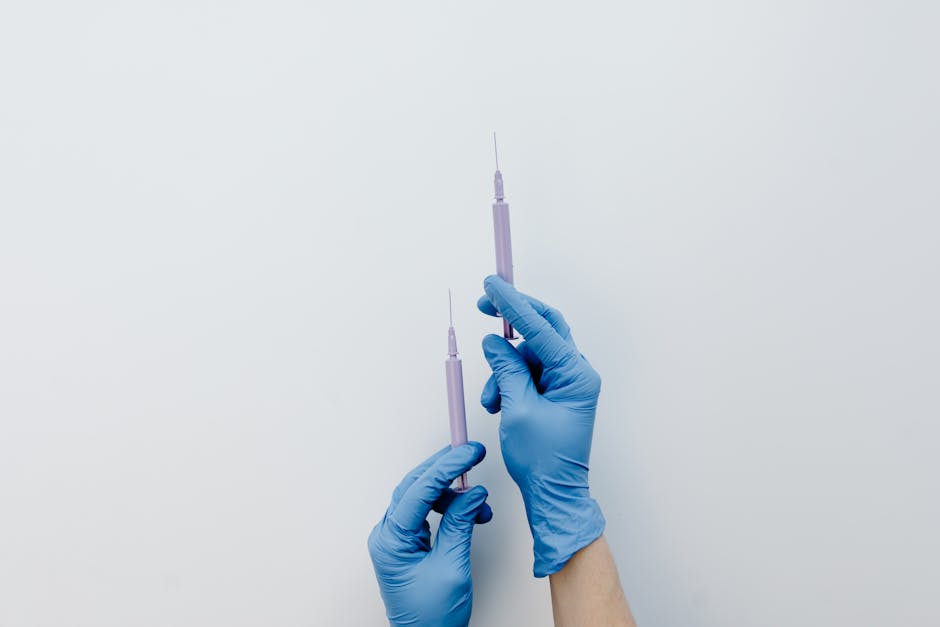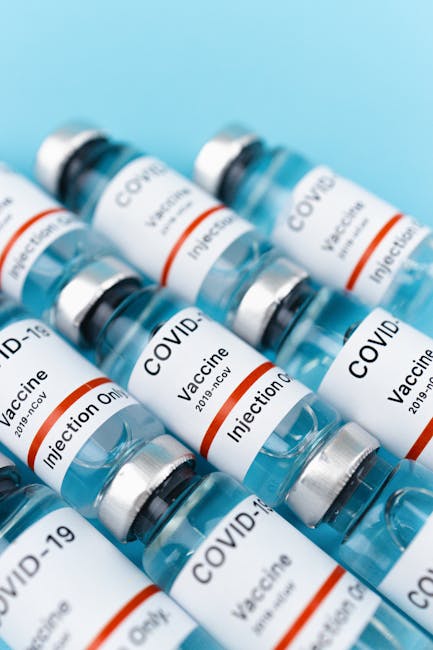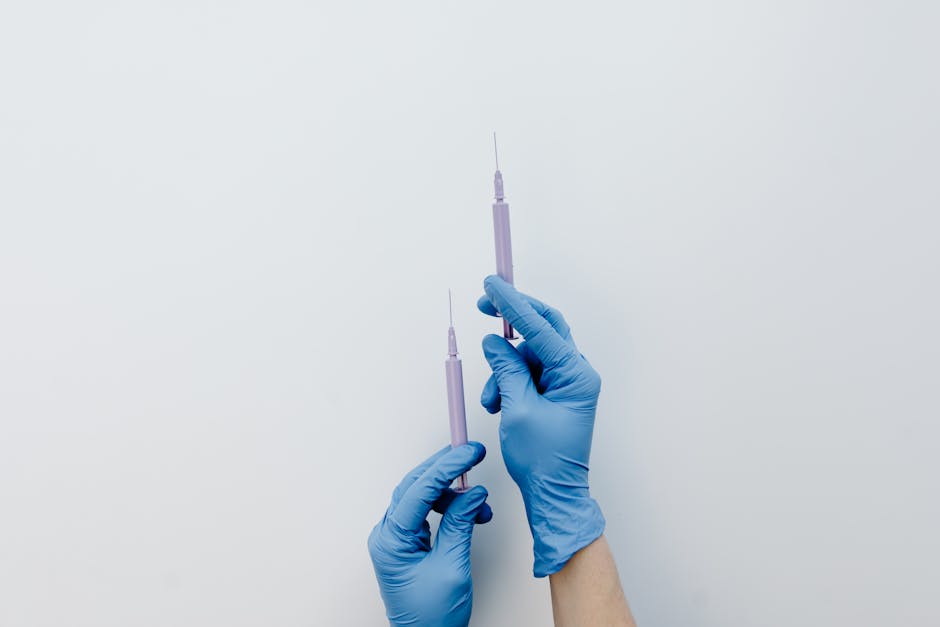Understanding the FDA’s Role in COVID-19 Vaccine Authorization
The Food and Drug Administration (FDA) plays a crucial role in ensuring the safety and efficacy of COVID-19 vaccines available in the United States. Their rigorous authorization process involves multiple phases of clinical trials, data analysis, and ongoing monitoring. This comprehensive guide will delve into the intricacies of the FDA’s involvement, addressing common questions and concerns regarding the safety and effectiveness of these life-saving vaccines.
The FDA’s Emergency Use Authorization (EUA) Process
Initially, COVID-19 vaccines were authorized under the FDA’s Emergency Use Authorization (EUA) process. This expedited pathway allows for the use of medical products during public health emergencies, such as a pandemic, when there are no adequate, approved, and available alternatives. The EUA process, while faster than the standard approval process, maintains rigorous scientific standards, requiring manufacturers to submit substantial data on safety and efficacy.
The FDA’s review of EUA applications includes a comprehensive assessment of:
- Preclinical data: This includes laboratory and animal studies evaluating the vaccine’s safety and potential efficacy.
- Clinical trial data: This involves data from large-scale clinical trials demonstrating the vaccine’s effectiveness in preventing COVID-19 infection, hospitalization, and death.
- Manufacturing processes: The FDA assesses the quality control measures in place to ensure consistent vaccine production.
- Risks and benefits: A thorough risk-benefit assessment is conducted to ensure that the potential benefits of the vaccine outweigh the potential risks.
Transition to Full FDA Approval
Following the EUA, several COVID-19 vaccines have received full FDA approval. This full approval signifies a higher level of scrutiny and data analysis compared to the EUA. Full approval requires a more extensive dataset demonstrating long-term safety and efficacy, as well as a more comprehensive review of manufacturing processes and quality control.
The transition to full FDA approval underscores the robust data supporting the safety and effectiveness of these vaccines. It also strengthens public confidence by providing an even higher level of assurance regarding their quality and performance.

Types of FDA-Authorized COVID-19 Vaccines
Several types of COVID-19 vaccines have received FDA authorization or approval. These include:
- mRNA vaccines (Pfizer-BioNTech and Moderna): These vaccines utilize messenger RNA (mRNA) technology to instruct the body’s cells to produce a harmless piece of the virus’s spike protein, triggering an immune response.
- Viral vector vaccines (Johnson & Johnson/Janssen): These vaccines use a modified, harmless virus (a vector) to deliver genetic material encoding the virus’s spike protein to the body’s cells, triggering an immune response.
Each vaccine has its own unique characteristics, including dosage, administration schedule, and potential side effects. The FDA has meticulously evaluated each vaccine’s safety and efficacy profile before granting authorization or approval.
Addressing Common Concerns and Misinformation
Despite the overwhelming scientific consensus supporting the safety and efficacy of COVID-19 vaccines, numerous misconceptions and misinformation persist. It’s crucial to address these concerns with accurate information based on scientific evidence.
Vaccine Safety
The FDA’s rigorous review process ensures that authorized vaccines meet stringent safety standards. While side effects are possible (most are mild and temporary), serious side effects are rare. The FDA actively monitors vaccine safety through various post-market surveillance systems, promptly addressing any safety concerns that arise.
Vaccine Efficacy
Clinical trial data and real-world evidence demonstrate that authorized COVID-19 vaccines are highly effective in preventing severe illness, hospitalization, and death from COVID-19. While vaccine efficacy may vary slightly depending on the specific vaccine and the circulating variants, the overall protection offered by these vaccines remains substantial.
Long-Term Effects
Concerns about long-term effects of COVID-19 vaccines are understandable. However, the FDA’s ongoing surveillance efforts, along with extensive research, continue to monitor for any potential long-term side effects. To date, no significant long-term safety concerns have been identified.
Fertility Concerns
There is no scientific evidence to support claims that COVID-19 vaccines affect fertility. This misconception has been widely debunked by numerous studies and scientific organizations.
The Importance of Vaccination
COVID-19 vaccines are a crucial tool in protecting individuals and communities from the severe impacts of COVID-19. Vaccination significantly reduces the risk of severe illness, hospitalization, and death, and it also helps to reduce the spread of the virus, protecting those who are vulnerable to infection.
Boosters and Variants
The emergence of new variants of the COVID-19 virus has highlighted the importance of booster shots. Booster doses help to maintain high levels of immunity against emerging variants. The FDA plays a vital role in authorizing updated booster vaccines to address evolving threats.

Staying Informed and Engaging with Reliable Sources
Staying informed about COVID-19 vaccines is crucial. Reliable sources of information include the FDA’s website, the Centers for Disease Control and Prevention (CDC), and reputable medical journals. It’s essential to be discerning and avoid spreading or believing misinformation. Always consult with a healthcare professional if you have any questions or concerns about COVID-19 vaccines.
The FDA’s Ongoing Commitment to Transparency and Safety
The FDA remains committed to transparency and public health. Their website provides detailed information on the authorization and approval processes for COVID-19 vaccines, as well as ongoing safety monitoring data. This commitment to open communication fosters public trust and encourages informed decision-making.

In conclusion, the FDA’s rigorous review and authorization process for COVID-19 vaccines has ensured the availability of safe and effective tools to combat the pandemic. By understanding the FDA’s role, addressing misinformation, and staying informed through reliable sources, individuals can make educated decisions about vaccination and contribute to a healthier community.

